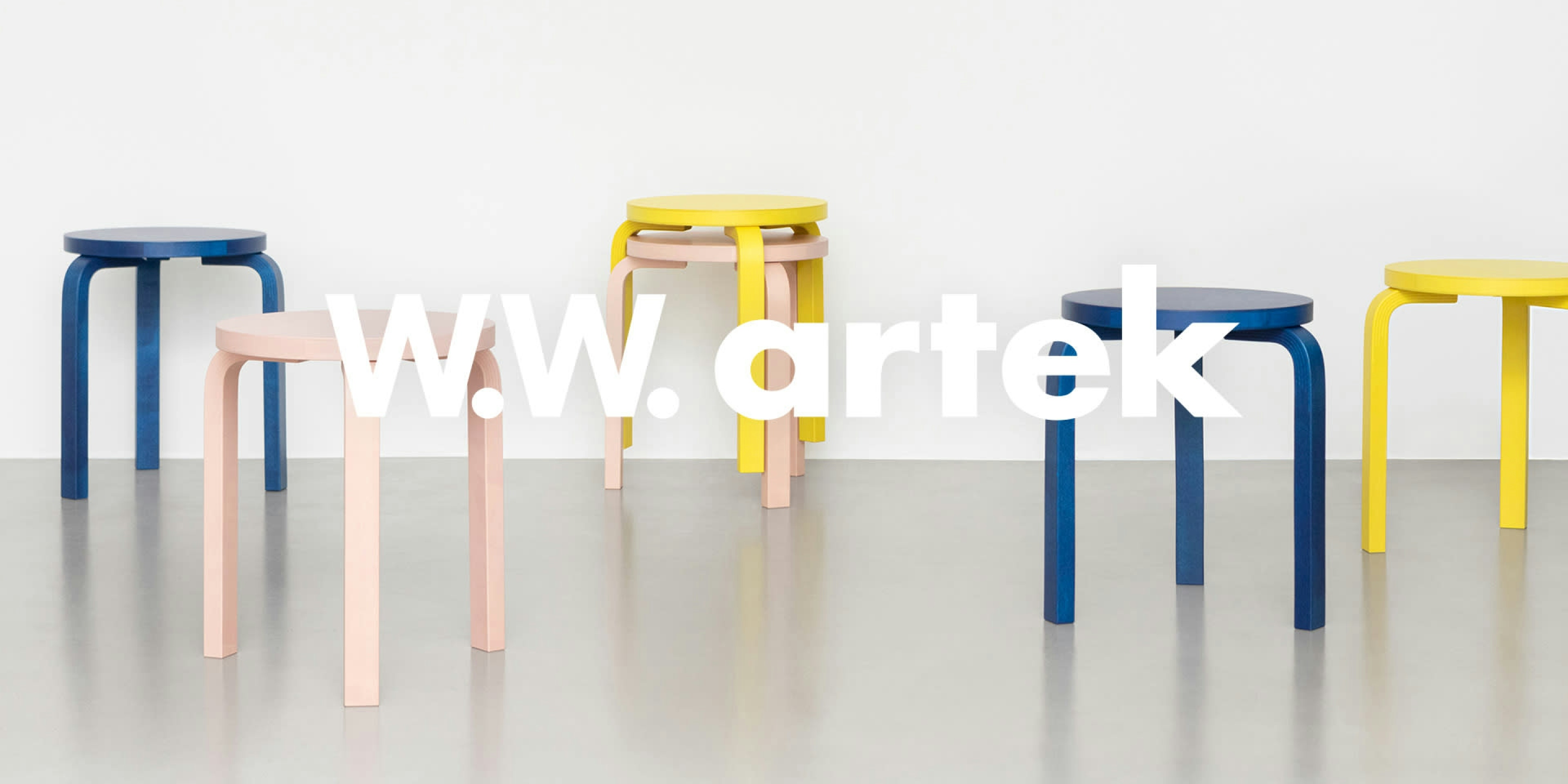





The 1920s signified a shift in aesthetic traditions, especially across the Western World. A post-First World War landscape gave way to an era of new technology: cities expanded, as skyscrapers dominated the skies and train lines offered fresh ways for people and places to stay interconnected. This era largely fed into the ethos of Artek which was founded in 1935 — a Finnish furniture company intent on blending art and technology together (hence the portmanteau name) to supply this new world with functional designs to facilitate a forward-thinking way of living. Architect Alvar Aalto and his wife Aino joined forces with Visual Arts Promoter Maire Gullichsen and Art Historian Nils-Gustav Hahl to formulate a company that intended to “sell furniture and to promote a modern culture of living by exhibitions and other educational means”.For almost a century, Artek has been a leading institution within the design world, influencing the way people live and work with pieces that are both visually and technically arresting. From the iconic Stool 60 with its patented L-shaped legs to the Armchair 41 formulated from bent plywood to defy previously held notions about the malleability of wood, Artek has and continues to push the boundaries of design.

As WOOD WOOD marks its 20th anniversary this year, co-founder Brian SS Jensen approached Artek in hopes of celebrating the occasion with an exclusive collaborative venture. In his own words, the Stool 60 has acted as an integral piece of furniture design for him growing up in Denmark, so he thought it’d only be fitting to pay homage to such a hallmark of Scandinavian design heritage. “When we work with other brands we look for an actual exchange, we like talking to outsiders about Artek and hearing their perspective on what we do,” explains Marianne Goebl, the Managing Director of Artek. “Brian clearly has a genuine interest in this material and I really like the result as it’s not your average ‘fashion collaboration’. He had an interesting point of view and there was a clear exchange of ideas and a conversation about what he wanted to do”.
Armed with a desire to elevate the natural birch wood that the Stool 60 is made from, Jensen decided to experiment with linseed-based coloured oils in his own backyard to produce a vibrant, translucent effect. “I wanted to see how the different colours worked on the wood before deciding anything, it´s quite interesting how materials and surfaces can change your perception of colours”, he says of the process. Deciding on blue, yellow and pink hues, Jensen took his experiments to Artek in hopes of replicating the results at factory level. “It was never an option to implement oil staining on the production line and, more importantly, we were worried that the oil-based colours would stain when in use”, he explains. “Artek developed a solution of water-based lacquers, that are both semi-transparent as well as fixated when finished; there was a bit of back and forth to achieve the correct tones, but a fairly smooth process, really”. The result is the W.W. Artek Stool 60 in three distinct shades: Bothnia Blue, Factory Yellow and Pale Pink, which serve as statement pieces on their own and complement one another when stacked together.